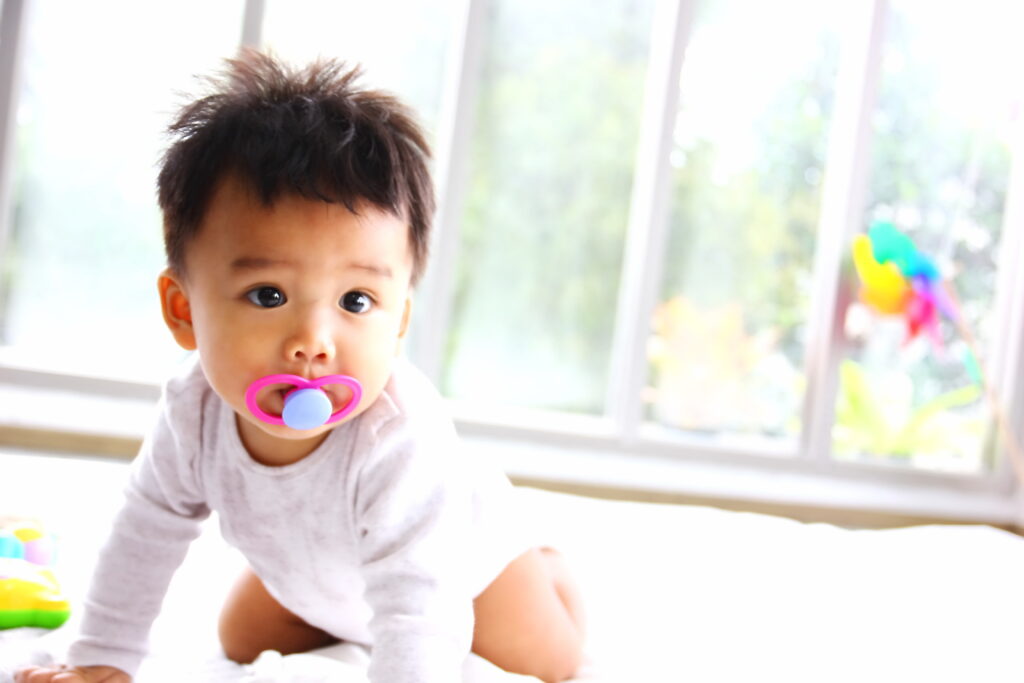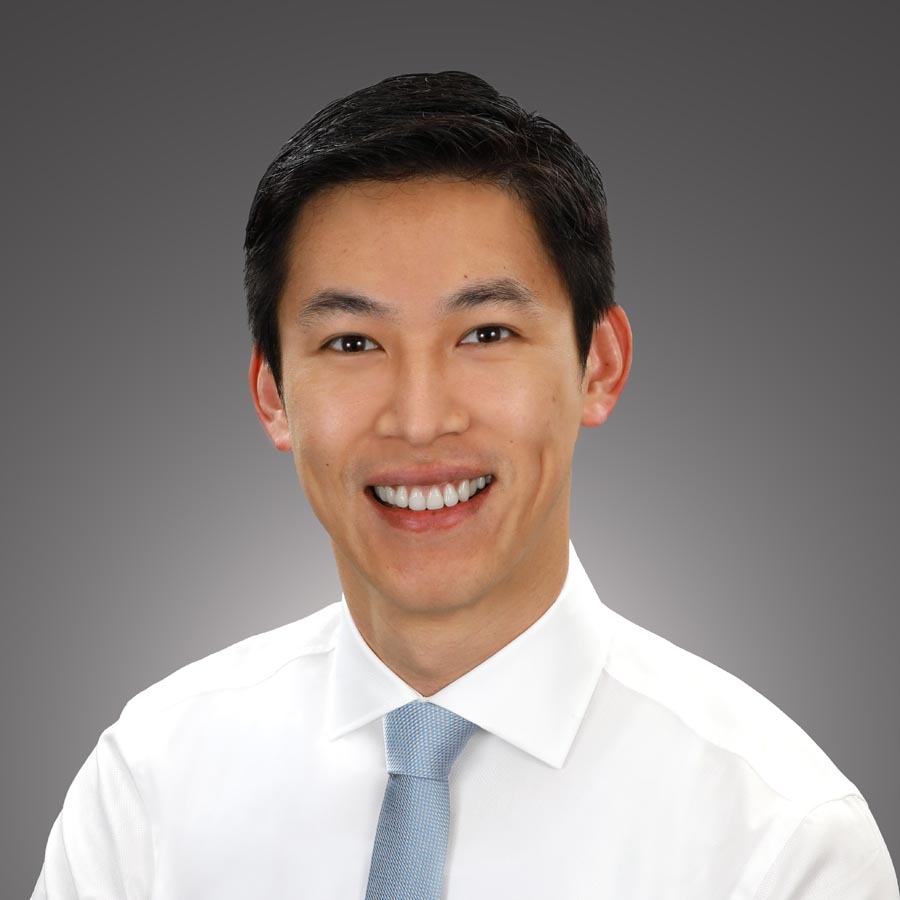Will Pacifiers Affect My Baby’s Teeth?

Do you have an infant who loves sucking on a pacifier? Have you ever worried that the pacifier will affect your baby’s teeth? If so, we have good news for you: if your child is still very young, the pacifier sucking habit likely will not cause dental problems.
Sucking is a natural reflex for infants that helps them feel calm and relaxed. Offering a pacifier can soothe a fussy baby, and might even lower the risk of sudden infant death syndrome during the first year of life. A pacifier sucking habit typically only becomes problematic if it continues for years. Fortunately, most children outgrow the habit on their own before permanent dental problems arise.
Here’s what parents should know about when pacifier use can become a problem and how to break the habit.
Do Pacifiers Cause Dental Problems?
A prolonged and frequent sucking habit may eventually cause crooked teeth or bite problems. The longer the habit continues, the more likely it is that your child will need orthodontic treatment in the future. Consequently, the American Academy of Pediatric Dentistry recommends discouraging pacifier use after age three.
The American Academy of Pediatrics and the American Academy of Family Physicians recommend weaning children from the pacifier even earlier – beginning at six months to one year of age – due to both the potential for dental problems and the increased risk for ear infections that prolonged pacifier use can cause.
Thumb Sucking vs. Pacifier Use: Which Is Worse?
Both pacifiers and thumb sucking affect the mouth in similar ways, and both can cause dental issues in children. However, it is generally easier to wean your child from a pacifier habit than a thumb sucking habit. Weaning from thumb or finger sucking may involve constant reminding from the caregiver, and is especially difficult to control after the child goes to bed. By contrast, a pacifier can simply be taken away. For this reason, the American Academy of Pediatric Dentistry recommends pacifier use over thumb sucking.
Should I Get An Orthodontic Soothers Over a Traditional Pacifier?
In short, not necessarily.
An orthodontic pacifier is intended to reduce the harmful dental problems caused by traditional pacifiers. Whereas a traditional pacifier has a round or slightly elongated nipple, an orthodontic pacifier has a nipple with a flat bottom and a slightly rounded top. This design is meant to encourage muscle movements that are more similar to those used by a child while breastfeeding, with the idea being that this will help the child’s dental arch develop more normally. However, although orthodontic pacifiers are often marketed by manufacturers as more “dental-friendly” for your child, both orthodontic and traditional pacifiers increase the risk of bite issues with prolonged use.
Regardless of the pacifier’s shape, it’s a good idea to wean from the pacifier sucking habit by age three.
How Can I Stop My Child from Using the Pacifier?
The best strategy for stopping your child’s pacifier habit depends on the age and temperament of your child.
For infants under one year of age, many parents find success by first limiting pacifier use to sleep times only, and then gradually phasing them out altogether. If the pacifier has been a regular component in your child’s sleep time routine, try substituting something new, like reading a book or singing a song while you rock your child. Children may also need extra hugs, kisses, and soothing during the transition.
Toddlers may be more agreeable to weaning if you talk with them honestly and openly about how the pacifier is bad for their teeth. Choose the approach you think will work best for your child – gradual or “cold-turkey” – and stick to it. Gather all the pacifiers in the house, and explain to your child that the pacifiers are going away. You might also offer to trade the pacifier for an alternative comfort (like a special blanket or new toy), distract your child with fun activities, and provide extra cuddles and attention.
Never punish a child to stop the pacifier habit. Many children suck on pacifiers as a way to deal with stress, so negative parental pressure can actually reinforce the habit. Similarly, try not to begin the weaning process during an otherwise stressful time, such as right after a move or when your child is starting school.
Above all, remain calm and confident, even if your child throws tantrums for the pacifier. You can lovingly validate your child’s feelings, but stay firm in your resolve to protect your child’s teeth.
Talk to a Professional – Dr. Lin at Hurst Pediatric Dentistry
If you have concerns that your child’s pacifier may be affecting his or her teeth, Dr. Lin is a board-certified pediatric dentist who can provide expert evaluation, support and advice. For a sucking habit that is persistent, Dr. Lin can also recommend alternative options, including a mouth appliance to help stop the habit. Hurst Pediatric Dentistry is here to help children in the Dallas-Fort Worth metroplex, including Hurst, Euless, Bedford, North Richland Hills, Southlake, Keller and Colleyville. Call our office at (817) 510-6400 and we will be happy to schedule your child’s appointment.
This article is intended to provide general information about oral health topics. It should not be used to diagnose or treat any medical condition or as a substitute for the advice of a healthcare professional who is fully aware of and familiar with the specifics of your case. Always seek the advice of your dentist or other qualified healthcare provider with regard to any questions you may have relating to a medical condition or treatment.
MEDICALLY REVIEWED BY:
Dr. Jin Lin

Dr. Jin Lin is a board-certified pediatric dentist with a passion for helping children achieve healthier, more beautiful smiles. He earned his Bachelor of Science degree from Cornell University and his Doctor of Dental Medicine (D.M.D.) degree from the Harvard School of Dental Medicine. After graduating cum laude from dental school, he completed his post-doctoral pediatric dentistry training at Boston Children’s Hospital and the Harvard School of Dental Medicine, where he served as chief resident and worked with children with a wide variety of special medical and dental needs, including children with rare syndromes.

